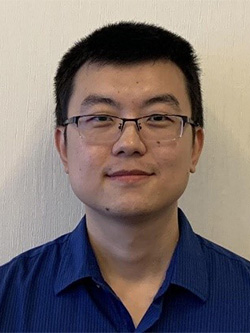
Dr. Fei Xu
Ansys Inc.
fei.xu@ansys.com
Fei Xu received his Ph.D in Mechanical Engineering from Iowa State University (2018). He then joined Ansys as a research and development engineer focused on developing software package for industry-scale thermo-fluid problems. His research interests include multiphase flows & reactions, heat transfer, fluid-structure interaction, and their applications in various complex industrial scenarios. In these areas, he has published 37 peer reviewed papers in international journals, 19 out of which are first/corresponding authored by him. In addition, Dr. Xu was invited to guest edit three special issues held by Renew. Energy., Chem. Eng. Process., and Comput. Math. with Appl., covering topics from biomass thermal conversions to developments of open-source software. He was invited to review research proposals for the Research Grant Council of Hong Kong, and to serve on panelist for the National Science Foundation of US.
Title: Modeling the multi-phase flow problems in fluid-structure interaction systems.
Abstract: Fluid-structure interaction systems are ubiquitous in energy related engineering problems. Among them, the flow subproblems are often multi-phase. In this study, a variational multiscale framework is presented, with an emphasis on modeling the multi-phase flow in such systems. We start from a finite element variational multiscale (VMS) formulation for incompressible turbulent flows. The multi-phase flow is modeled by a level-set scalar convection system, which is enhanced by a re-distancing technique and mass balance operator. A simple but effective and generalized moving contact line model is proposed. To account for the ill-conditioned system matrix originated from the multi-scale nature of the problem, a direct coupling approach based on a matrix-free technique is developed. The framework is further augmented by an immersogeometric method to model complex geometries and large-scale structural displacements. The simulation results demonstrate good agreements between the numerical framework and experimental measurements in engineering applications, such as off-shore wind turbines and marine engineering problems.